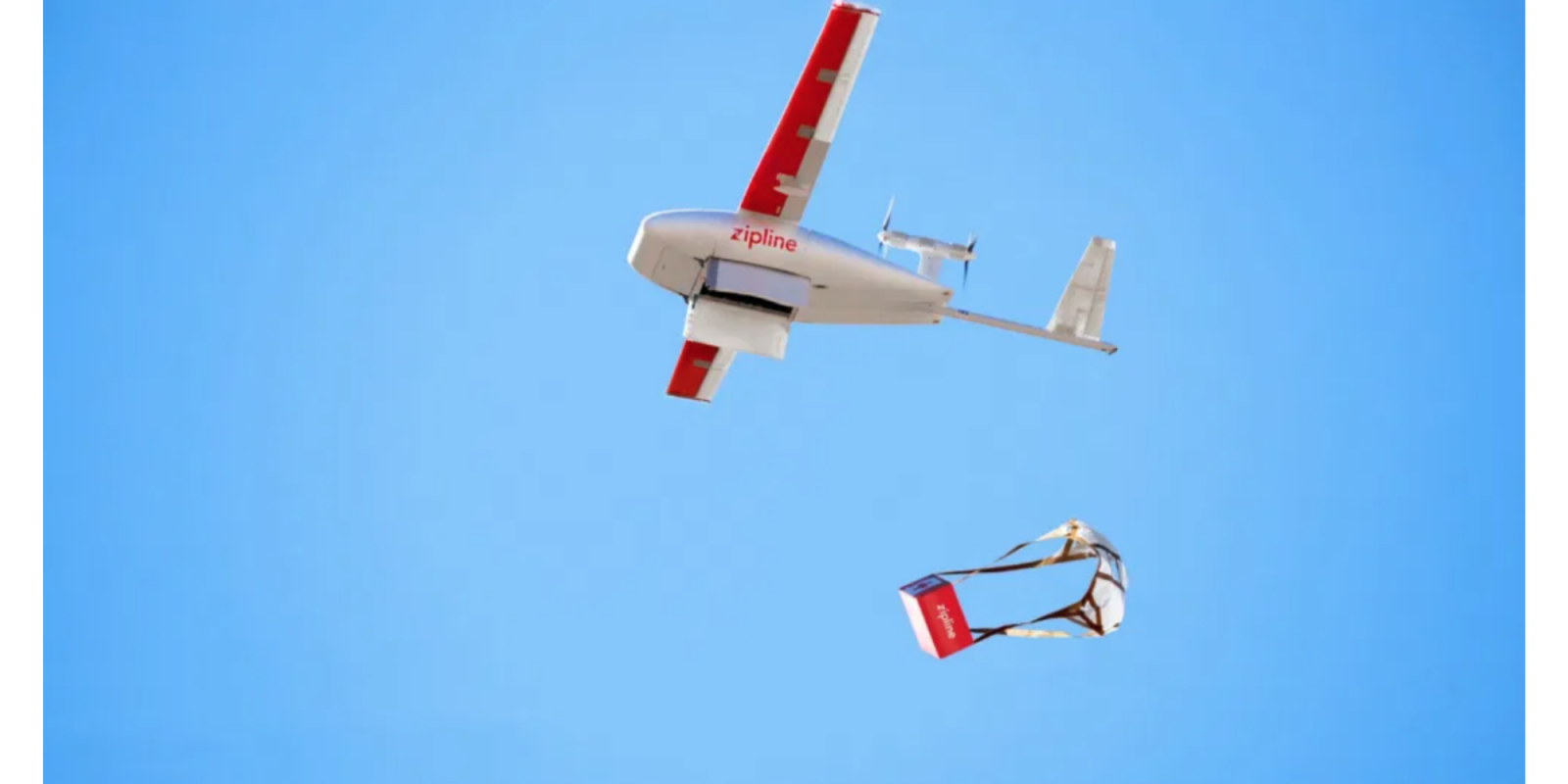
The world’s leading drone delivery specialist, Zipline, has announced a capital infusion of $250 million, which it will use to expand its booming activities in Africa and the US. The investment increases the total funds Zipline has raised to $486 million, and values the instant logistics company at $2.75 billion.
Drone delivery specialist is on one impressive roll
That influx of cash is both a continuation and consequence of the flurry of successes Zipline has revealed this year. The most recent was the company’s agreement with Pfizer to test and develop an end-to-end cold chain distribution service for COVID-19 vaccines. Prior to that Zipline signed an accord with Ghana’s Ministry of Health to expand its medical deliveries to four new distribution centers, covering 90% of the nation’s population in total. It also entered deals with Toyota and Walmart; inked new delivery partnerships with Nigeria’s Kaduna and Cross River states; and launched what it calls the world’s first 24/7 autonomous delivery service in Rwanda – the nation in which Zipline began in 2016 with the ambition of serving 21 hospitals.
How things have changed since. Zipline says its fixed wing, drop-a-box drones have now flown 10 million autonomous miles, distributed 2 million vaccine doses, and completed more than 150,000 commercial deliveries. Who wouldn’t want a part of that?
The new round of funding brings in Fidelity, Intercorp, Emerging Capital Partners, and Reinvent Capital with previous investors Baillie Gifford, Temasek, and Katalyst Ventures. Zipline says that money will be used to build additional hubs across its booming African network, where it plans to be serving 6,000 locations by year’s end. Deliveries in Africa are expected to surge across the board as the underserved continent distributes its share of the 500 billion Pfizer vaccination doses US President Joe Biden has promised to release internationally.
Zipline’s singular approach to drone delivery
California-based Zipline will also muscle up its American presence, following its trial flights in North Carolina delivering medical equipment in partnership with Novant Health. The company hopes the thousands of incident-free hours of operation in that activity may make it easier to transform the temporary waiver it received from the Federal Aviation Administration to operate beyond visual line of sight missions into permanent certification.
Its recent spate of successes, including the new funding, suggest the company’s singular approach to drone deliveries has been effective – possibly visionary. Unlike most other actors, Zipline has built an end-to-end, fully integrated operation as it has progressed. That includes designing and manufacturing its autonomous drones, creating the piloting and logistics software, and developing the system overseeing takeoffs and landings.
“This is what scale means to us,” Zipline said in announcing its new investment. “Breaking out of the limitations of existing systems to create a model of logistics that reaches everyone, everywhere.”
FTC: We use income earning auto affiliate links. More.




Comments